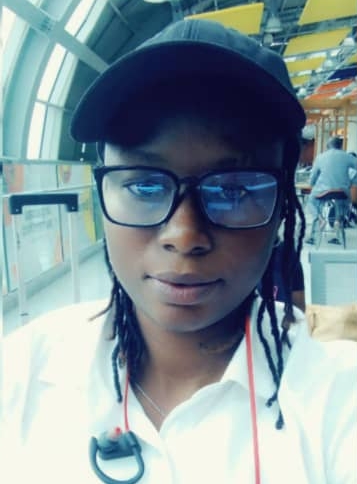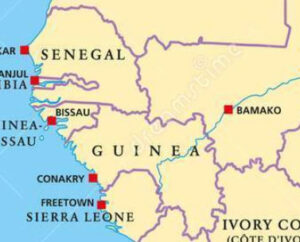Senegalese refugee says Ivory Coast is not safe for LGBTI+ people
Moïse Manoël-Florisse, is an African-Caribbean online journalist keeping an eye…
The story of Guadalupe (pseudonym), a Senegalese lesbian who has fled to Côte d’Ivoire (Ivory Coast) to seek asylum. illustrates the struggle that many LGBTI+ refugees face in Africa. She remains in limbo in Côte d’Ivoire, where she is experiencing extreme uncertainty as the Ivorian government and the UN High Commission for Refugees refuse to register her asylum application.

Erasing 76 Crimes recently interviewed Guadalupe in order to understand what she has undergone:
76crimes: What is your current situation?
Guadalupe: In order to be able to register an asylum application with the United Nations High Commission for Refugees (UNHCR), whose headquarters in West Africa are located in Dakar, I first had to leave Senegal, where I was born, in order to be able to register as a lesbian refugee with another country in the region.
In fact there is almost no country in West Africa, except for Gambia and Mauritania, where one can be recognised as a victim of human rights violations as an LGBTI+ person by the UNHCR, as one must first be able to register as an LGBTI refugee in the host country, which is often a real obstacle course, except in the two countries mentioned above where there is no such registration. [Text modified at the request of the interviewee to clarify her point]
So for me in Côte d’Ivoire, it didn’t work. The Directorate of Aid and Assistance to Refugees and Stateless Persons (DAARA), which is an agency of the Ivorian Ministry of Foreign Affairs, working with UNHCR, refused to register my application, because there is no protection for LGBTI people in the law here.

76crimes: Are you considering an appeal?
Guadalupe: I have been recommended a lawyer, and the appeal process is expected to take five to six months, but I am not very optimistic. Indeed, the Ivorian authorities are quite adamant towards LGBTI refugees, and even if the local population seems to tolerate lesbians in Abidjan, there is nevertheless an insidious and silent homophobia at the political level.
This is why I say that Côte d’Ivoire is wrongly perceived as a safe country for LGBTI+ people, especially as local human rights organisations are facing difficulties, with a decrease in the means allocated to them.
While waiting for my intractable situation to find a favourable outcome, I am here and I live off the money that friends back in Senegal send me. I don’t feel under pressure in Abidjan, because I have no ties or relatives in Côte d’Ivoire and I seem to feel better here overall.
Related articles :
- Imprisoned for being a lesbian, aided by donors, Octavia has been set free (76crimes, February 3, 2023)
- Niger leader plans to outlaw gay sex, execute married same-sex couples (76crimes, January 23, 2023)
- Senegal: LGBTI activists sue in France to punish anti-gay group JAMRA (76crimes, December 21, 2022)
- Stop Homophobie founder tells of his 30 years of LGBT activism in the French-speaking world (76crimes, December 20, 2022)
- Fighting for change in Senegal, lesbian activist sees a long, difficult road ahead (76crimes, November 15, 2022)
- Justice minister in Mali plans to make homosexuality a crime (76crimes, August 22, 2022)
Source: African Human Rights Media Network member RightsAfrica.com.




